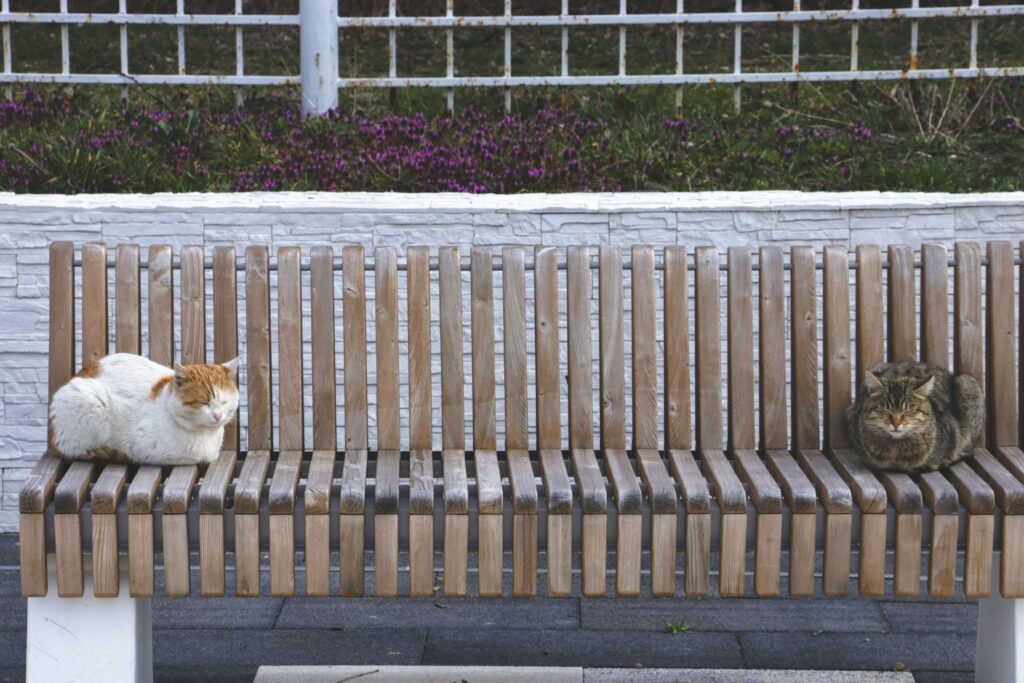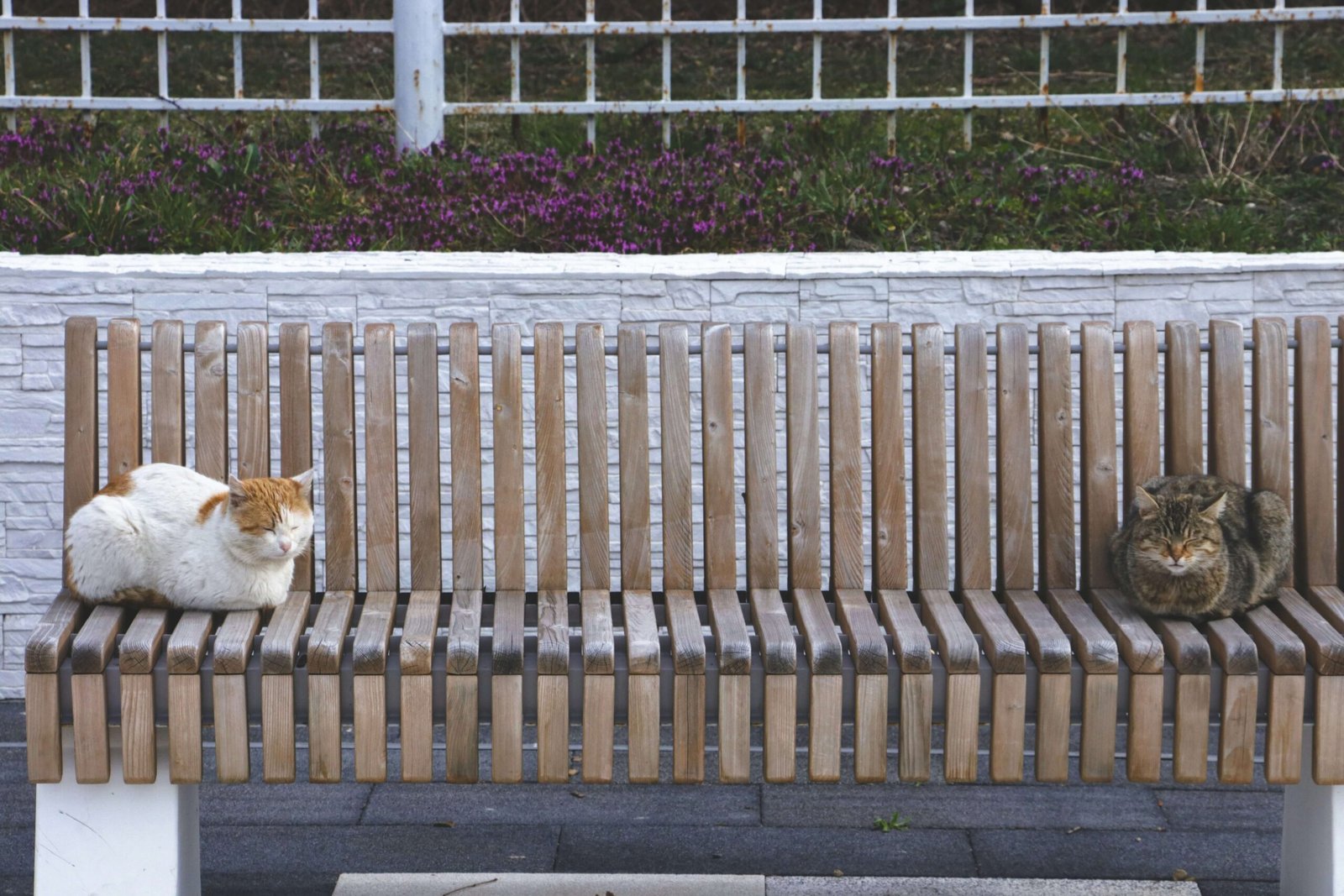What Does It Mean When Your Cat Headbutts You?
Cats are fascinating creatures, full of quirks and behaviors that often leave us wondering what’s going on in their mysterious little minds. One such behavior is when your feline friend headbutts you. Whether it’s a gentle nudge or a more enthusiastic bump, this action can be both endearing and puzzling. But what does it really mean when your cat headbutts you? Is it a sign of affection, a way to mark territory, or something else entirely?
In this blog post, we’ll explore the reasons behind this adorable behavior, decode its meaning, and help you understand how to respond. By the end, you’ll have a deeper appreciation for your cat’s unique ways of communicating—and maybe even feel a bit flattered by those little head bumps!
Why Do Cats Headbutt? Key Reasons Behind This Behavior
Cats headbutt for several reasons, each tied to their instincts, emotions, or social habits. Below, we break down the most common explanations for this charming behavior:
Affection and Bonding
When your cat headbutts you, it’s often a sign of love and trust. Cats reserve this gesture for those they feel close to, making it a special way of showing affection.Scent Marking
Cats have scent glands located on their heads, and headbutting is a way to mark you as part of their “territory.” This is not about ownership but rather inclusion in their inner circle.Seeking Attention
If your cat feels neglected or simply wants some extra love, they might headbutt you to get your attention. It’s their way of saying, “Hey, I’m here!”Comfort and Security
Headbutting can also be a self-soothing behavior. By rubbing against you, your cat may be seeking comfort or reassurance during stressful times.Social Interaction
In multi-cat households, cats often headbutt each other as a form of greeting or bonding. When they do it to you, they’re treating you like another member of their social group.
Understanding these reasons can help you better interpret your cat’s actions. Next time your furry friend gives you a headbutt, you’ll know it’s their way of expressing connection and care.
How Should You Respond to a Cat’s Headbutt? Tips for Positive Interaction
When your cat headbutts you, it’s important to respond appropriately to reinforce the bond between you. Here are some tips to guide your reaction:
Pet Them Gently
A soft stroke on their head or behind their ears can show your cat that you appreciate the gesture and reciprocate their affection.Avoid Pulling Away
If you move away quickly, your cat might feel confused or rejected. Instead, stay calm and let them initiate the interaction.Offer a Treat or Toy
Rewarding your cat with a small treat or engaging them with a toy can strengthen the positive association they have with headbutting.Talk to Them Softly
Speaking in a soothing tone lets your cat know you’re happy to connect with them. They may not understand your words, but they’ll sense your warmth.Respect Their Boundaries
While headbutting is usually friendly, some cats may prefer not to be touched afterward. Pay attention to their body language to avoid overstepping.
By responding thoughtfully, you can deepen your relationship with your cat and make them feel loved and secure. Remember, every interaction is an opportunity to build trust!
Check this guide 👉Why Does My Cat Shake His Tail? Best 7 Behavior Tips!
Check this guide 👉Why Does My Cat Sleep on My Pillow? Best 7 Behavior Tips!
Check this guide 👉Why Do Cats Roll Around on the Ground? Best 7 Behavior Tips!

Reasons Cats Headbutt Humans | How to Respond Appropriately |
|---|---|
Affection and Bonding | Pet them gently |
Scent Marking | Avoid pulling away |
Seeking Attention | Offer a treat or toy |
Comfort and Security | Talk to them softly |
Social Interaction | Respect their boundaries |
Misconceptions About Cat Headbutting: Clearing Up Common Myths
While cat headbutting is generally a positive behavior, there are some misconceptions floating around. Let’s clarify a few of these myths to ensure you fully understand your feline companion:
Myth: Cats Only Headbutt When They Want Food
While hunger might sometimes motivate a cat to seek attention, headbutting isn’t exclusively tied to mealtime. It’s primarily about connection and communication.Myth: All Cats Headbutt Equally
Not all cats exhibit this behavior frequently—or at all. Some are naturally more reserved, while others are more expressive with their affection.Myth: Headbutting Always Indicates Happiness
Although it’s usually a sign of contentment, headbutting can occasionally signal stress or uncertainty. Observing your cat’s overall demeanor is key.Myth: Cats Headbutt Only Humans
Cats also headbutt objects, other animals, and even walls. It’s a versatile behavior used for various purposes beyond human interaction.Myth: Ignoring a Headbutt Won’t Hurt Your Cat’s Feelings
While cats don’t experience emotions like humans, ignoring repeated attempts at connection could weaken the bond over time.
By dispelling these myths, you can better interpret your cat’s actions and respond in a way that nurtures your relationship.
Fun Facts About Cat Headbutting: Did You Know?
Cat headbutting, also known as “bunting,” is rich with interesting details that highlight just how unique our feline friends are. Here are some fun facts to deepen your understanding:
It’s Called Bunting in Scientific Terms
The technical term for headbutting is “bunting,” derived from the act of rubbing scent glands against surfaces or individuals.Cats Have Multiple Scent Glands
In addition to their heads, cats have scent glands near their cheeks, chin, and base of their tail, all contributing to their marking behavior.Headbutting Strengthens Group Bonds
In the wild, cats use bunting to establish harmony within their group, reducing tension and reinforcing social ties.Some Breeds Are More Likely to Headbutt
Certain breeds, like Siamese and Maine Coons, are known for being particularly affectionate and prone to frequent headbutting.Headbutting Can Be a Stress Reliever
For cats, the act of bunting releases calming hormones, helping them cope with anxiety or changes in their environment.
These intriguing tidbits offer a glimpse into the complexity of cat behavior. Next time your cat headbutts you, remember—it’s a multifaceted act rooted in biology and emotion!
Additional Signs of Affection in Cats: Beyond Headbutting
While headbutting is a clear sign of affection, cats express their love in many other subtle ways. Recognizing these behaviors can help you better understand your feline friend and appreciate the depth of their emotions. Here are some additional signs to look out for:
Kneading
Cats often knead soft surfaces, including your lap, as a throwback to kittenhood when they would stimulate milk flow from their mother. It’s a gesture of comfort and trust.Slow Blinking
When your cat slowly blinks at you, it’s a sign of deep affection. Known as a “cat kiss,” this behavior indicates they feel safe and relaxed around you.Purring
While purring can sometimes signal pain or discomfort, it’s most commonly associated with contentment and happiness. Your cat may purr while being petted or simply sitting near you.
Understanding these behaviors allows you to see just how much your cat values your presence. Each action is a small but significant way they show their love and trust.
How to Strengthen Your Bond with Your Cat: Practical Tips
Building a strong bond with your cat takes time and effort, but the rewards are well worth it. A deeper connection not only makes your cat happier but also enriches your life. Here are some practical tips to strengthen your relationship:
Engage in Playtime Daily
Interactive play using toys like feather wands or laser pointers helps your cat stay active and strengthens your emotional connection.Create a Safe Space
Provide your cat with a cozy area where they can retreat when feeling overwhelmed. This shows them you respect their need for security.Use Positive Reinforcement
Reward good behavior with treats, praise, or gentle petting. Positive reinforcement builds trust and encourages desirable habits.Learn Their Preferences
Some cats enjoy belly rubs, while others prefer chin scratches. Pay attention to what your cat likes and tailor your interactions accordingly.Spend Quality Time Together
Simply sitting near your cat or reading aloud can help them feel more connected to you. Cats thrive on companionship, even if it’s quiet and low-key.
By incorporating these practices into your daily routine, you’ll foster a stronger, more meaningful bond with your furry companion.
Common Mistakes to Avoid When Interacting with Your Cat
Even the most well-meaning cat owners can unintentionally make mistakes that affect their relationship with their pet. Being mindful of these pitfalls ensures a harmonious and loving dynamic. Here are some common errors to avoid:
Forcing Interaction
Cats value their independence. Forcing them to cuddle or play when they’re not in the mood can lead to stress and strained trust.Ignoring Body Language
Cats communicate through subtle cues like tail flicks, ear positions, and vocalizations. Ignoring these signals can result in misunderstandings or unwanted behavior.Punishing Bad Behavior
Punishment can create fear and anxiety in cats. Instead, focus on redirecting negative behaviors through positive reinforcement.Neglecting Routine
Cats thrive on consistency. Sudden changes in feeding times, litter box cleaning schedules, or daily routines can upset them.Overlooking Health Issues
Behavioral changes, including reduced headbutting, can signal underlying health problems. Regular vet check-ups are essential for maintaining your cat’s well-being.
Avoiding these mistakes will help you build a healthier, happier relationship with your cat. Every small step toward understanding their needs makes a big difference in their quality of life.
Frequently Asked Questions About Cat Headbutting
Why does my cat headbutt me but not others?
Your cat likely feels a stronger bond with you or considers you part of their trusted inner circle.
Is it normal for my cat to headbutt furniture?
Yes, cats often headbutt objects to mark their territory and create a familiar scent environment.
Should I worry if my cat suddenly stops headbutting me?
A sudden change in behavior could indicate health issues or stress. Consult a vet if you notice any unusual patterns.
Can headbutting hurt my cat?
Generally, no. However, excessive force could potentially cause discomfort, so monitor their behavior closely.
How can I encourage my cat to headbutt me more?
Spend quality time together, engage in play, and reward them with treats to build trust and strengthen your bond.
Understanding Your Cat’s Unique Language
In conclusion, when your cat headbutts you, it’s a meaningful gesture that speaks volumes about their feelings toward you. From expressing affection to seeking comfort, this behavior highlights the deep bond you share with your feline companion. By understanding the reasons behind headbutting and responding appropriately, you can nurture a stronger connection and provide a loving, supportive environment for your pet. Remember, every purr, meow, and headbutt is a piece of the puzzle that makes up your cat’s unique personality. So the next time your furry friend nudges you, take a moment to appreciate the silent conversation happening between you—it’s one of the many joys of sharing life with a cat.
Dog Tapeworm Life Cycle: Best 7 Expert Tips! – Learn how tapeworms infect dogs, spot symptoms, and break the cycle with expert prevention strategies.
Anxious Cat Body Language: Best 7 Expert Tips! – Learn to spot signs of stress, understand triggers, and help your cat feel safe and relaxed.
Anxious Dog Body Language: Best 7 Expert Tips! – Learn to spot signs of anxiety, respond effectively, and help your dog feel safe and secure.
Is Breeding Dogs Bad? Best 7 Expert Tips! – Explore the ethics, benefits, and risks of dog breeding to make informed decisions for a better future.





